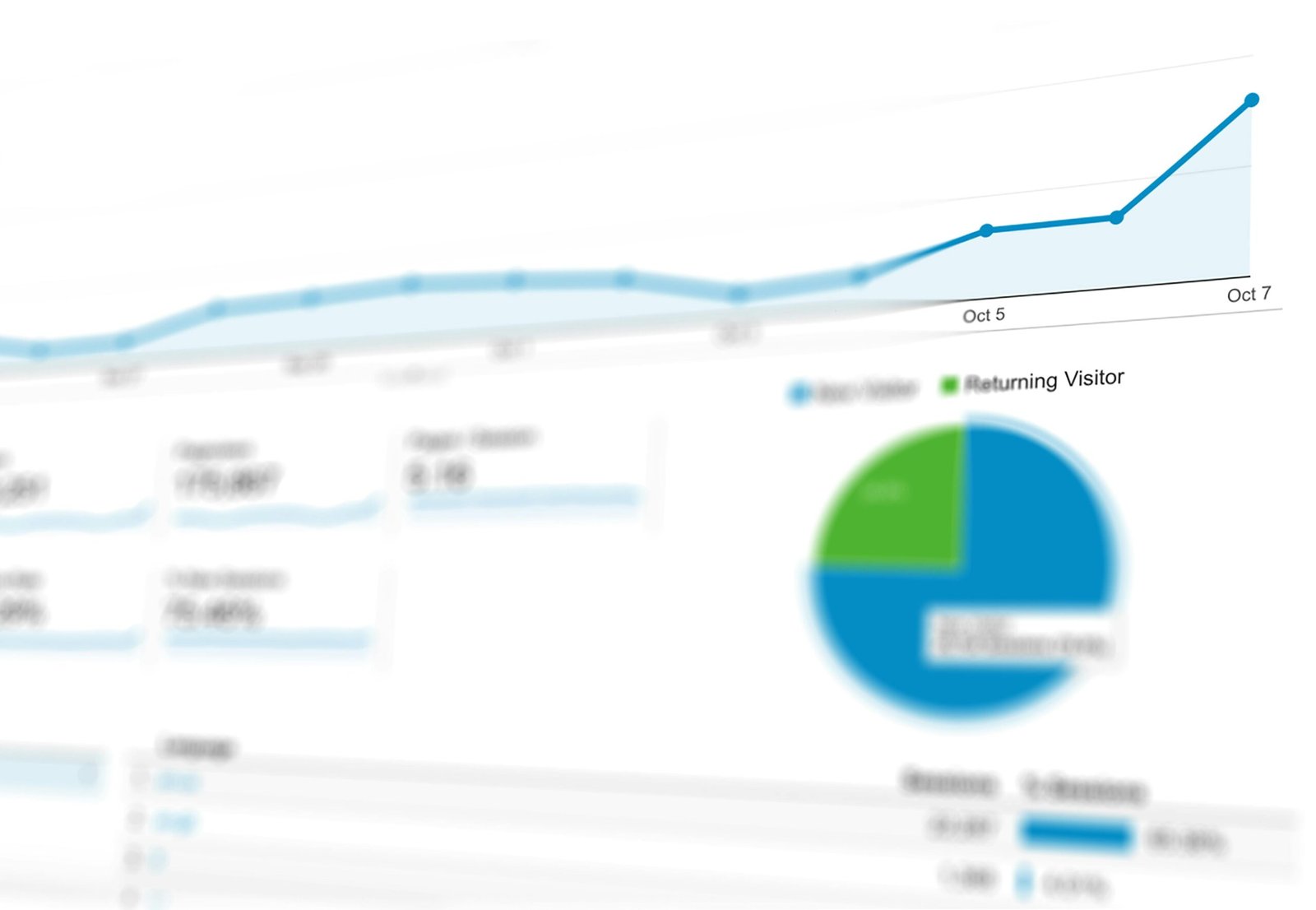Understanding how customers interact with your website is essential for growing your business, and Google Analytics is one of the best tools to help you do that.
For many small business owners, Google Analytics can feel overwhelming at first, but it is actually a straightforward tool that helps you:
- Track how many people visit your website
- See where your traffic is coming from (Google, social media, referrals, ads)
- Understand what pages and content are performing best
- Measure whether your marketing efforts are working
This guide will break down what Google Analytics is, why it is important, and how to set it up on popular website platforms like WordPress, Squarespace, and Duda.
1. What Is Google Analytics and Why Does Your Small Business Need It?
What Is Google Analytics?
Google Analytics is a free tool from Google that tracks and reports website traffic. It provides real-time data on how visitors interact with your website, helping you make informed marketing decisions.
Why Is Google Analytics Important for Small Businesses?
- Know Where Your Customers Come From – See if visitors find you through Google search, social media, email campaigns, or referrals.
- Understand What’s Working – Identify which pages keep visitors engaged and which ones drive conversions.
- Improve Marketing ROI – Track how well your ads, social media, and email marketing are performing.
- Optimize Your Website – Discover where visitors drop off and make improvements to increase conversions.
Example: How an HVAC Business Used Google Analytics to Get More Leads
An HVAC company noticed that most visitors left their site after visiting the pricing page. Using Google Analytics, they discovered that customers wanted clearer pricing information. After updating the page to include service packages and a “Request a Quote” button, their lead conversions increased by 30 percent.
Google Analytics helps small businesses make data-driven decisions rather than guessing what is working.
2. How to Set Up Google Analytics for Your Website
Setting up Google Analytics is easy and only takes a few steps.
Step 1: Create a Google Analytics Account
- Go to Google Analytics.
- Click “Start for Free” and sign in with a Google account.
- Click “Set up a new account” and enter your business name, website URL, and industry.
Step 2: Get Your Google Analytics Tracking Code
- After setting up your account, Google will provide a Tracking ID (G-XXXXXXXXX).
- This code needs to be installed on your website to start tracking data.
Step 3: Install Google Analytics on Your Website
The installation process depends on which website platform you use. Below are step-by-step instructions for popular platforms.
3. How to Install Google Analytics on Different Website Platforms
WordPress (Using Google Site Kit or Rank Math SEO)
- Log in to your WordPress dashboard.
- Install and activate the Google Site Kit plugin.
- Open Site Kit and connect your Google Analytics account.
- Follow the on-screen instructions to complete the setup.
If you use Rank Math SEO, you can integrate Google Analytics directly through the plugin settings.
Squarespace
- Log in to your Squarespace account and go to Settings.
- Click Advanced > External API Keys.
- Paste your Google Analytics Tracking ID into the “Google Analytics Account Number” field.
- Click Save and Google Analytics will begin tracking your site.
Wix
- Open your Wix Dashboard and go to Marketing Integrations.
- Click Connect Google Analytics.
- Enter your Tracking ID and save your changes.
Duda
- In your Duda Dashboard, go to Settings > Analytics & Tracking.
- Paste your Google Analytics tracking code into the Custom Header section.
- Click Save and publish your site.
Once installed, Google Analytics will start collecting data within 24 hours.
4. How to Check If Google Analytics Is Working
To confirm that Google Analytics is set up correctly, use one of the following methods:
Option 1: Use Google’s Real-Time Report
- Go to Google Analytics > Reports > Real-Time.
- Open your website in another tab.
- If you see an active user (yourself), Google Analytics is working.
Option 2: Use Google Tag Assistant (Chrome Extension)
- Install Google Tag Assistant from the Chrome Web Store.
- Click the extension while visiting your website.
- If Google Analytics is working, it will show a green checkmark.
Example: A Plumbing Company Fixes a Tracking Issue
A plumbing company set up Google Analytics but saw zero traffic after a week. They used Google Tag Assistant and discovered that the tracking code had been installed incorrectly. After fixing the issue, they started seeing real-time website traffic and valuable customer insights.
5. How to Use Google Analytics to Improve Your Marketing
Google Analytics is not just about tracking visits—it helps small businesses improve their marketing and increase conversions.
1. Identify Your Most Popular Pages
- Go to Google Analytics > Behavior > Site Content to see which pages get the most traffic.
- Improve high-performing pages by adding stronger calls to action or updating outdated content.
2. See Where Your Traffic Comes From
- In Acquisition > All Traffic > Channels, check if visitors come from Google, social media, referrals, or ads.
- Double down on what is working and fix what is not.
3. Track Website Conversions
- Set up Goals in Admin > Goals to track completed actions like form submissions, phone calls, or purchases.
- Use conversion data to optimize ad spend and marketing strategy.
Example: A Law Firm Increases Consultation Bookings
A law firm found that most clients booked consultations after visiting their FAQ page. They added a “Book a Free Consultation” button to the FAQ page, increasing conversions by 30 percent.
6. Final Thoughts: Google Analytics Is a Must for Small Businesses
Google Analytics helps small businesses track traffic, measure success, and make data-driven marketing decisions.
Once installed, it provides valuable insights into customer behavior, website performance, and marketing effectiveness. Small business owners should check analytics regularly and make adjustments based on the data to improve their results.
If you need help setting up Google Analytics, contact Send It today.

